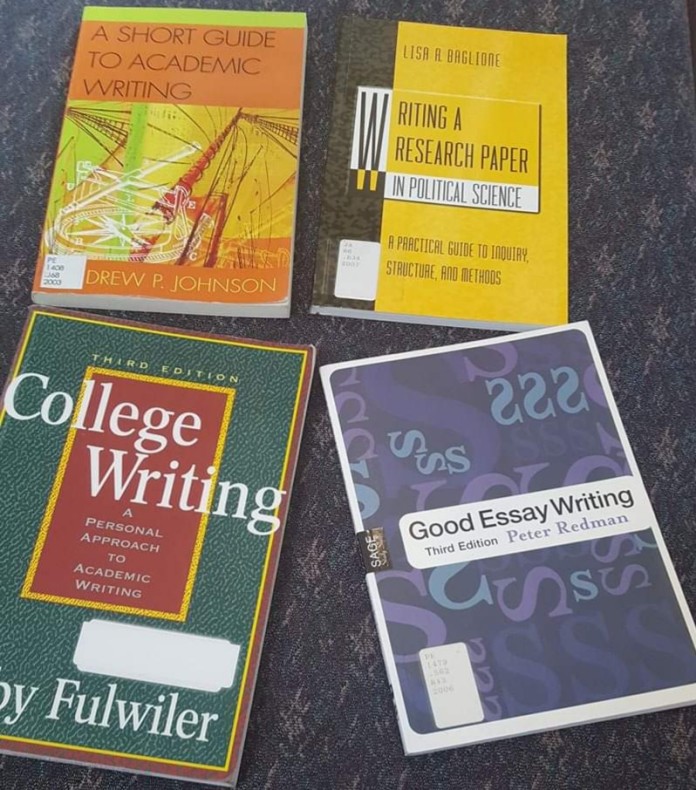

Academic burnout is a condition in which students no longer have the energy and motivation to cope with difficult classes or other adversities related to their studies. When you experience burnout, you may have a negative attitude about studying and experience loss of enthusiasm and concern for your academic performance. Burnout has varying causes, ranging from individual circumstances, like unrealistic expectations and ultra-competitive personality or high standards, to an environmental stress like pressure to succeed amidst challenging workload. If left unchecked, the symptoms of burnout can escalate into a full-blown psychological disorder and you could be at a higher risk of dropping out of college due to lower level of self-confidence. Below are some suggestions on things you can do to prevent yourself from feeling isolated, inadequate, powerless, or alienated in the middle of a burnout:
- Learn when to say “no, thanks” or learn to wait for better timing

I once was unaware that it is okay to tell someone that we do not have time to lend a hand right now but we still want to get back to them at a more convenient time. When an English Literature professor offered me to join an editorial board for his poetry review magazine, I accepted his invitation because I did not want to disappoint him. In a better circumstance, accepting an opportunity is good because it can expand your horizon, but when you are busy tending to many different responsibilities, you need to re-evaluate what activities are worth your time. At that time, I was already preoccupied with my commitment to an honors society, an environmental sustainability club, a choir group, a piano class, and weekly Aikido practice at Hiram College campus’ gym. My participation, however, did not go further than regular membership. That was a shame because if I picked just one activity to join, instead of almost half a dozen, I could contribute on a more meaningful level. I was lucky that my roommate pulled me aside to have a heart-to-heart conversation that sobered me up. In the end, I dropped my Aikido lessons and several of my other extracurricular commitment. Only after restructuring my schedule and freeing up my days could I finally enjoy working side by side with my professor in the English department. I got promoted from a poetry reader/critic to an assistant editor-in-chief and I didn’t think that chance at leadership could have happened if my focus was all over the place.
- Do not push yourself too hard that you collapse! Have some healthy boundaries

In the beginning of my sophomore year, I befriended an extremely smart girl, let’s call her Annie. My friend Annie lived an hour away from campus and she had to take care of her sickly siblings while holding two jobs, one at the campus’ library and one at a nearby fast food restaurant. Despite her circumstance, she was determined to double major in both Teaching Licensure and Pre-Med because she was not sure yet if she would rather become a teacher or a healthcare professional. Annie, however, held a secret: she did not find happiness in what she pursued and she did all of the aforementioned activities just to prove to herself that she is a strong, capable woman. One day, Annie’s jam-packed schedule backfired. Her boss at the library had reprimanded her for skipping important meetings and she was on the verge of being fired. Annie had to decide whether holding two jobs while juggling two very different major was a smart idea. A few weeks later she contacted me to say that she left the Pre-Med track and chose to just complete the Teaching Licensure instead. Flash forward two years later, she graduated summa cum laude and now is a teacher for fifth graders in a middle school. I guess it is safe to say that her decision to keep her priorities straight had helped her in the long run.
- Beware of the law of diminishing return and sunk-cost fallacy

Have you ever found yourself in a situation where your original plan no longer made sense but you continued to stick with it because you already invested a lot of effort and thought into it? I will give you an example: suppose you have continuously taken 18 credit hours a semester (instead of the minimum 12 credit hours or the average 15 credit hours) just to graduate faster and then, after an uphill battle with the administration office, you get the Dean’s approval to take extra 3 credit hours. You are now juggling 21 credit hours. However, you slowly start to spend early mornings and late evenings cramming for tests and reviewing for pop quiz. This could still lead you to graduate in 3.5 years instead of the usual 4 years, but this would mean you have to sacrifice your other interests. You no longer have a social life and valuable network. You stop having fun. If you choose to persevere in hope that your patience pays off in the future, then consider this: when you keep doing something as a routine (just because you have given a considerable amount of time into it), there will come a point when the harmful effects outweigh the benefits. In the scenario above, you have lost the precious opportunities to develop long-lasting connections that may help you in your career once you graduate. Yes, you may end up with stellar grades and awesome accolades, but you could be lacking in social skills. Is that what you want?
Some take home notes:

The desire to accomplish terrific things and be an overachiever can be admirable, but when this desire leads to academic burnout, you need to pause and re-arrange your priorities. Nothing is sadder than looking back at your youth and regretting the untapped potential as a result of over-committing yourself to activities that you never fully immersed yourself in. Remember, quality will triumph over quantity.








